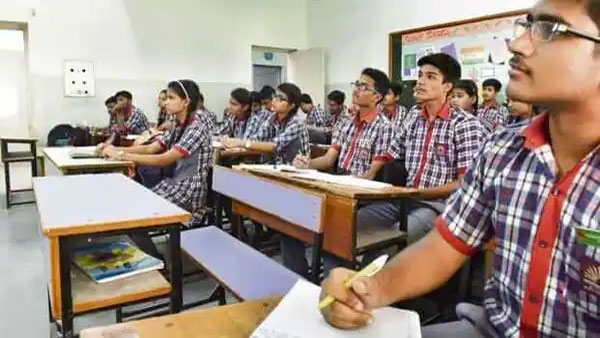
His Holiness, the Dalai Lama, says: “Love and compassion are necessities, not luxuries. Without them, humanity cannot survive." Traditional Indian learning systems focused on creating well-rounded individuals by developing the heart (compassion and love) and mind (cognitive development). Sadly, literacy is now viewed largely as acquisition of language skills and numeracy, when in today's strife-ridden world, values of compassion, empathy and love are urgencies to be developed at an early stage in learners who can contribute to the betterment of society. Re-imagining literacy as it existed in the traditional Indian learning system, in the context of today's times, thus becomes imperative.
It is noteworthy that the National Education Policy (NEP) 2020 has recognized this pressing need and stipulated that we “create a new system that is aligned with the aspirational goals of 21st century education, including Sustainable Development Goal 4, while building upon India's traditions and value systems." The NEP lays particular emphasis on the development of the creative potential of each individual.
Nurturing care and compassion when young: Research has shown that teaching-learning methods based on common sense, experience and scientific findings can cultivate key values like compassion, love and empathy. Viewed from this lens, cognition is incomplete without the development of the heart. What is needed is a new-age literacy model involving teaching-learning methods that encourage the development of the heart and mind together. We must inculcate pro-social capabilities, interpersonal abilities and emotional resilience in children in their early learning stages, all of which are powerful levers to create caring young individuals. This will enable them to manage their emotions, demonstrate compassion and empathy, form healthy relationships, navigate life situations and go on to become nation-builders.
Additionally, ethical literacy can spark an inner recognition of the interdependence of life, integrity and humility, and of the fact that we exist in this world not only for oneself but for others. This awakening of the self is 'Sewa Bhaav' in its purest form and will go a long way in making India a land of equal opportunity, harmony and peace.
It is heartening to see the adoption of this re-imagined concept of literacy gathering momentum. Through its collaboration with Emory University, Piramal Foundation has partnered with the governments of Rajasthan and Odisha to implement compassion-based teaching-learning methods. As a consortium partner of Project Sampoorna, it also supports the government of Jharkhand to implement this form of literacy. The governments of Delhi and Uttarakhand are also implementing such methods, with encouraging outcomes. This testifies to the growing acceptance that true transformative change can be enabled by developing well-rounded, compassionate individuals.
The wheels of change have been set in motion and the difference it makes is palpable. As a class 10 student at a Jhunjhunu school says: “By learning about my emotions, I am becoming more compassionate to myself and others."
(The writers are Mr. Ajay Piramal and Monal Jayaram; views are personal)
This article was first published on 09 September 2022, on Mint
TAGS
SHARE





